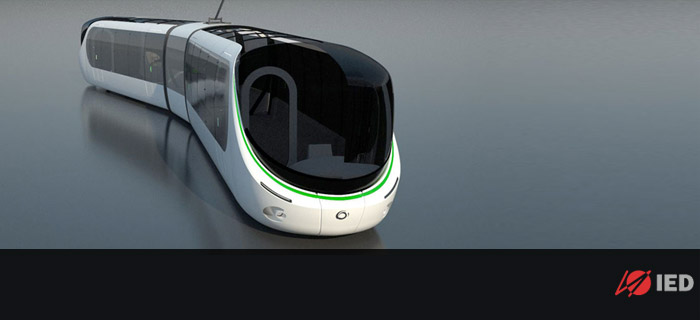The figure of the Mobility Manager is also present in Italy but for the most professional role is still unknown. Yet the Mobility Manager was introduced in 1998 by the Decree "Sustainable mobility in urban areas" which requires companies and government agencies with more than 300 employees to adopt a plan of commuting for its staff.
Let's start to understand what this professional is concerned: it is a responsible enterprise mobility that reduce the use of private vehicles and personal best times of the organization to limit traffic congestion. From this was born the concept of "mobility management", which manages the demand for mobility through the development of strategies to ensure the movement of people and goods efficiently and sustainably.
Currently present in Italy are 66 offices and work area of mobility manager mobility manager 800 company. Then there is an association at the national level, the Euromobility, which since 2000 has committed to the promotion and development of mobility management at private companies and public bodies.
In Europe, however, is on the network EPOMM (European Platform on Mobility Management): a non-profit organization that supports the exchange of information and experience among the countries of the Old Continent. Italy, through the Ministry of Environment, has completed the accession procedures and in the coming days I will be officially a member.
To confirm that the increasing intreresse Mobility Management is causing in our country, was held recently in Turin, the National Conference Mobility Management and Sustainable Mobility in Turin, organized by the same Euromobility. The discussions that have taken place in this interesting event (joint 11th edition) started examining the issue of border mobility in Europe, with the economic crisis that has generated a new dawn for the activities of mobility management.
Hence the passage of the evolution of a different mobility of transport and the resulting strategies implemented. Despite these discussions cause an aversion to cars - pollution, congested urban traffic, occupy public land, do not meet the real needs of individual movement - you can not hide the fact that these vehicles can not be eliminated by the magic wand.
Nor can we expect people to change their habits overnight. But the cars have to change. And they are changing. Roberto Rizzo analysis shows that currently circulating in Italy 36 million cars: 59 per 100 inhabitants. The highest in Europe. Mid-size car weighs 15 to 20 times more passenger carrying and utilizes the movement of 3% of the chemical energy contained in the extracted oil.
It is used for little more than an hour a day to reach average speeds (urban) of only 15 km / hour. More than sufficient and valid reasons, according to Rizzo, to start thinking seriously about ecological cars. The electric car allows the use of clean energy sources. These hybrids represent an established trading, as well as LPG and CNG.
Begin to spread those hybrid plug-in hybrid and within reach of the "range-extended plug-in" are electric in every way but also have small internal combustion engines that are activated only when the batteries are nearing depletion. For hydrogen vehicles will take several years, still supports Rizzo, because fuel cells are being developed.
Finally, another idea in favor of sustainable mobility involves the planning, and design of urban areas so that car use is no longer the exception but the rule. 


Let's start to understand what this professional is concerned: it is a responsible enterprise mobility that reduce the use of private vehicles and personal best times of the organization to limit traffic congestion. From this was born the concept of "mobility management", which manages the demand for mobility through the development of strategies to ensure the movement of people and goods efficiently and sustainably.
Currently present in Italy are 66 offices and work area of mobility manager mobility manager 800 company. Then there is an association at the national level, the Euromobility, which since 2000 has committed to the promotion and development of mobility management at private companies and public bodies.
In Europe, however, is on the network EPOMM (European Platform on Mobility Management): a non-profit organization that supports the exchange of information and experience among the countries of the Old Continent. Italy, through the Ministry of Environment, has completed the accession procedures and in the coming days I will be officially a member.
To confirm that the increasing intreresse Mobility Management is causing in our country, was held recently in Turin, the National Conference Mobility Management and Sustainable Mobility in Turin, organized by the same Euromobility. The discussions that have taken place in this interesting event (joint 11th edition) started examining the issue of border mobility in Europe, with the economic crisis that has generated a new dawn for the activities of mobility management.
Hence the passage of the evolution of a different mobility of transport and the resulting strategies implemented. Despite these discussions cause an aversion to cars - pollution, congested urban traffic, occupy public land, do not meet the real needs of individual movement - you can not hide the fact that these vehicles can not be eliminated by the magic wand.
Nor can we expect people to change their habits overnight. But the cars have to change. And they are changing. Roberto Rizzo analysis shows that currently circulating in Italy 36 million cars: 59 per 100 inhabitants. The highest in Europe. Mid-size car weighs 15 to 20 times more passenger carrying and utilizes the movement of 3% of the chemical energy contained in the extracted oil.
It is used for little more than an hour a day to reach average speeds (urban) of only 15 km / hour. More than sufficient and valid reasons, according to Rizzo, to start thinking seriously about ecological cars. The electric car allows the use of clean energy sources. These hybrids represent an established trading, as well as LPG and CNG.
Begin to spread those hybrid plug-in hybrid and within reach of the "range-extended plug-in" are electric in every way but also have small internal combustion engines that are activated only when the batteries are nearing depletion. For hydrogen vehicles will take several years, still supports Rizzo, because fuel cells are being developed.
Finally, another idea in favor of sustainable mobility involves the planning, and design of urban areas so that car use is no longer the exception but the rule.



- Juventus 2 - 2 Torino (Charity Match) (24/03/2011)
- Zidane, Nedved, Ravanelli, Davids & Vialli turn out for a charity Juventus-Torino match (24/03/2011)
- Zinedine Zidane Delighted To Be Back In Action For Juventus Against Torino Legends (24/03/2011)
- Torino sack Papadopulo after 11 days as Lerda returns (21/03/2011)
- Papadopulo appointed Torino Coach (09/03/2011)
No comments:
Post a Comment